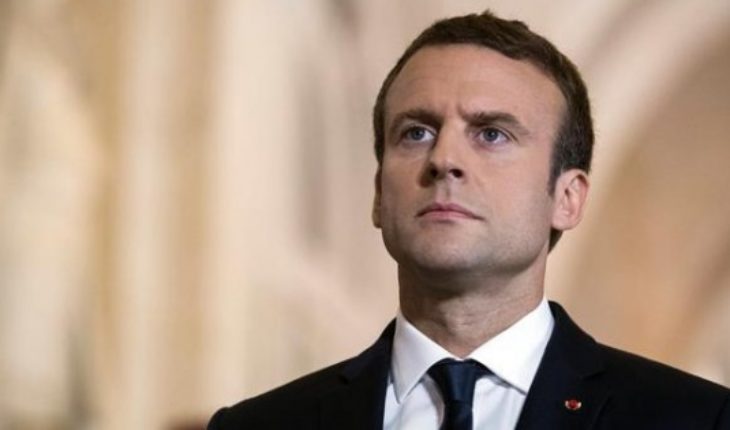French President Emmanuel Macron faces the mother of all his reforms, pensions, with the announcement of a great debate and social concertation until the end of the year that prevents resistances already manifesting from a part of the union front in a protest condemning immobility.
Two days after the commissioner he himself chose for reform, Jean-Paul Delevoye, publicly presented his proposals, Macron went out of his way to point out this Saturday that they are not the last word and that by the return of the summer holidays there will be a phase of several months of social debate and concertation.
It will be “at the end of the year or at the beginning of next year” when the modalities will be fixed in a bill which will then pass your Government and which will probably not be debated in Parliament until after the March municipal elections.
During this period of debate, one of its main challenges is to decant in favour of the country’s first trade union, the French Confederation of Workers (CFDT), which has been willing but if some of its modifications are accepted, in particular on the so-called ” balance retirement age.”
THE GOAL OF REFORM
The president insists that it is about maintaining “a sharing system in which those who work finance the pensions of those who are retired but that it is fairer, particularly for women and those who have had stuttering careers.”
In practice, this means first of all a universal contribution system that replaces the 42 that currently exist in the public and private sector, and therefore the disappearance of the ten special schemes with very favourable conditions.
There are about 765,000 people in these schemes as nurses or policemen, but especially from public capital firms such as the SNCF railway, the EDF and Paris RATP metropolitan transport, who can retire at a younger age than the rest.
More than half should lose that privilege and therein lies the greatest potential focus of protests in the form of strikes, demonstrations and disruption of activity.
The creation of a universal regime will be done through a system of points that will accumulate throughout the professional career, and Macron has emphasized the progressive nature of the new device. It will not affect current retirees or workers born before 1963.
THE MAIN POINTS THAT WILL CHANGE
The most closely increased change in Delevoye’s report is the “balance retirement age” that will allow a full pension to be collected and which will initially be set at 64 years in 2025, when the reform is expected to begin.
It is the age at which the financial balance of the system would be guaranteed, and which will tend to increase if life expectancy continues to rise as before, or if demographic aging worsens the level of dependence between assets and retirees.
As macron was a promise since he was elected in 2017, the possibility of retiring at 62 remains, but with a 5% reduction from the full pension for each year that is missing to reach the equilibrium age. Those who continue to work beyond the age of 64 will have an equivalent bonus.
The criterion for entitlement to a full pension will no longer be quoted for 43 years (the rule for those born in 1973) which leads many to continue in the labour market after reaching 62 years of voluntary retirement.
The points accrued are the ones that will determine the pension that will be charged. For every 100 euros quoted during the working life – with a single rate of 28.12% to be distributed to 60% by the company and 40% for the employee – 5.5 euros will be received each year of retirement.
SOLIDARITY MECHANISM
For people with short-quote periods, such as women who have spent years caring for children or dependents or those who have suffered periods of unemployment or inactivity, their pension will be completed up to a minimum equivalent to 85% of the minimum wage ( EUR 1,000 at the current level), up from 81% so far (75% for farmers).
For each child that has been held, a 5% bonus will be added to the pension rights, which can be shared between the two parents but will by default be attributed to mothers.
When one of the two members of a couple is widowed, the survivor’s pension will be 70% of what the two received together in life. Efe
translated from Spanish: Macron opens a big national debate for pension reform
July 20, 2019 |





